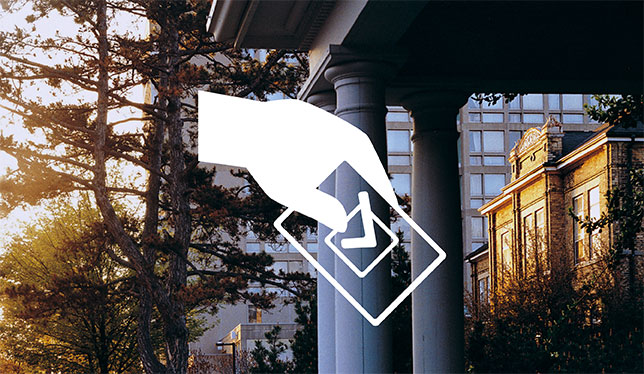An awakening for postdoc professional development
Postdoctoral fellows are a unique group and they need career advice tailored specifically to them.

A year has flown by since I started a secondment with the postdoctoral fellows office at the University of Alberta. Less than 24 hours into my post, I had received an overwhelming amount of feedback from postdocs on the direction of their professional development. The topic was clearly important to them.
Little did I expect that learning about postdoc life would begin before I even met with this community and that the activity of setting up a meeting would provide an opportunity to reflect on more questions about how to best serve their needs. Within days of the meeting, there were scheduling conflicts, emergency cancellations, job interviews and, of course, a few people who did not confirm their attendance. Life happens and people get sick, injured, locked out of their house, and similar mayhem can prevent people from attending meetings. But, it sparked my curiosity about what happened to my many silent or non-attending new constituents.
1. We know many PhDs have had limited experience in the workforce and few opportunities to practise their professionalism. One postdoc clearly had great mentorship in this area, and when she indicated she could not attend the meeting, she also provided a summary of her responses to the agenda items. How can we foster a more professional attitude among our postdoctoral fellows?
2. Postdocs may be overwhelmed in their work environments and struggle to meet all the demands on their time. Deadlines change, priorities shift, and meetings and other activities get dropped. Is there support for the mental wellness of postdocs?
3. Most disturbing to me is a possible conclusion that postdocs feel neglected, powerless and undervalued. Are postdocs too intimidated to let their supervisors know they have other commitments? Do they believe their professional needs have little value? What is the messaging to postdocs about professional development from their supervisors and the campus community?
Unfortunately, I did discover that all my initial conclusions were true. The past year has taught me that postdoctoral fellows are a unique group, and have as much similarity to graduate students as graduate students have to undergraduate students. By choice, postdocs do not want to be grouped together with graduate students, something that I think is worth noting as most postdocs fall under the faculty or school of graduate studies. Postdoc contracts can vary from three months to three years, with the average postdoc working for just over a year. Postdocs are on a fast-moving treadmill and need to be thinking about landing another job before they are grounded in their current position. Adding onto this are supervisors who are busy, under-supported, and have few funds available to them.
Although postdocs may not agree, only 12 percent of supervisors surveyed do not talk with their fellows about non-tenure careers or connect them to their industry/nonprofit/government stakeholders. Many supervisors will wait for their postdocs to initiate the career conversation. While some postdocs have excellent agency and are exploring their career options, others have no idea of where to begin.
Building community through actions such as a professional development Facebook group has now connected a third of postdocs on campus. Having connections to the greater university community resonated strongly with them. We have a more robust website that speaks to all aspects of professional training for postdocs, with particular attention to teaching, research and career development. There is also an individual development plan with a built-in term review that will hopefully lead to more discussions between supervisors and postdocs, and more feedback is encouraged, to lead to better performance in their fellowship and career.
A deliberate and mindful melding of leadership and employability workshops was initiated to fit into the diverse landscape of sessions offered by other campus providers and to influence the mindset of PhDs. Our language has become more inclusive to bring postdoctoral fellows to activities provided by campus service providers and the faculty of graduate studies and research. Unless explicitly stated, most postdocs will not attend events or utilize resources unless postdocs are included in their target audience.
While there remain many opportunities to improve the postdoctoral experience, I hope that I have provoked interest in looking at ways to build relationships with the alumni office, to initiate formal faculty support and governance around postdocs, and to improve connections to Canadian employers.
Renee Polziehn is the professional development director, faculty of graduate studies and research, at the University of Alberta.
Featured Jobs
- Canada Excellence Research Chair in Computational Social Science, AI, and Democracy (Associate or Full Professor)McGill University
- Business – Lecturer or Assistant Professor, 2-year term (Strategic Management) McMaster University
- Psychology - Assistant Professor (Speech-Language Pathology)University of Victoria
- Education - (2) Assistant or Associate Professors, Teaching Scholars (Educational Leadership)Western University
- Veterinary Medicine - Faculty Position (Large Animal Internal Medicine) University of Saskatchewan















Post a comment
University Affairs moderates all comments according to the following guidelines. If approved, comments generally appear within one business day. We may republish particularly insightful remarks in our print edition or elsewhere.